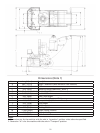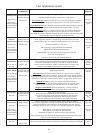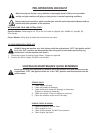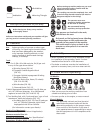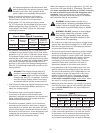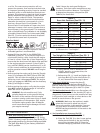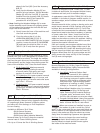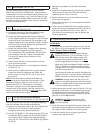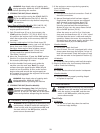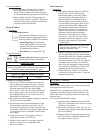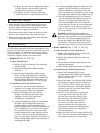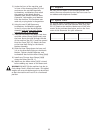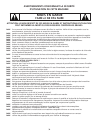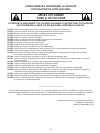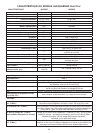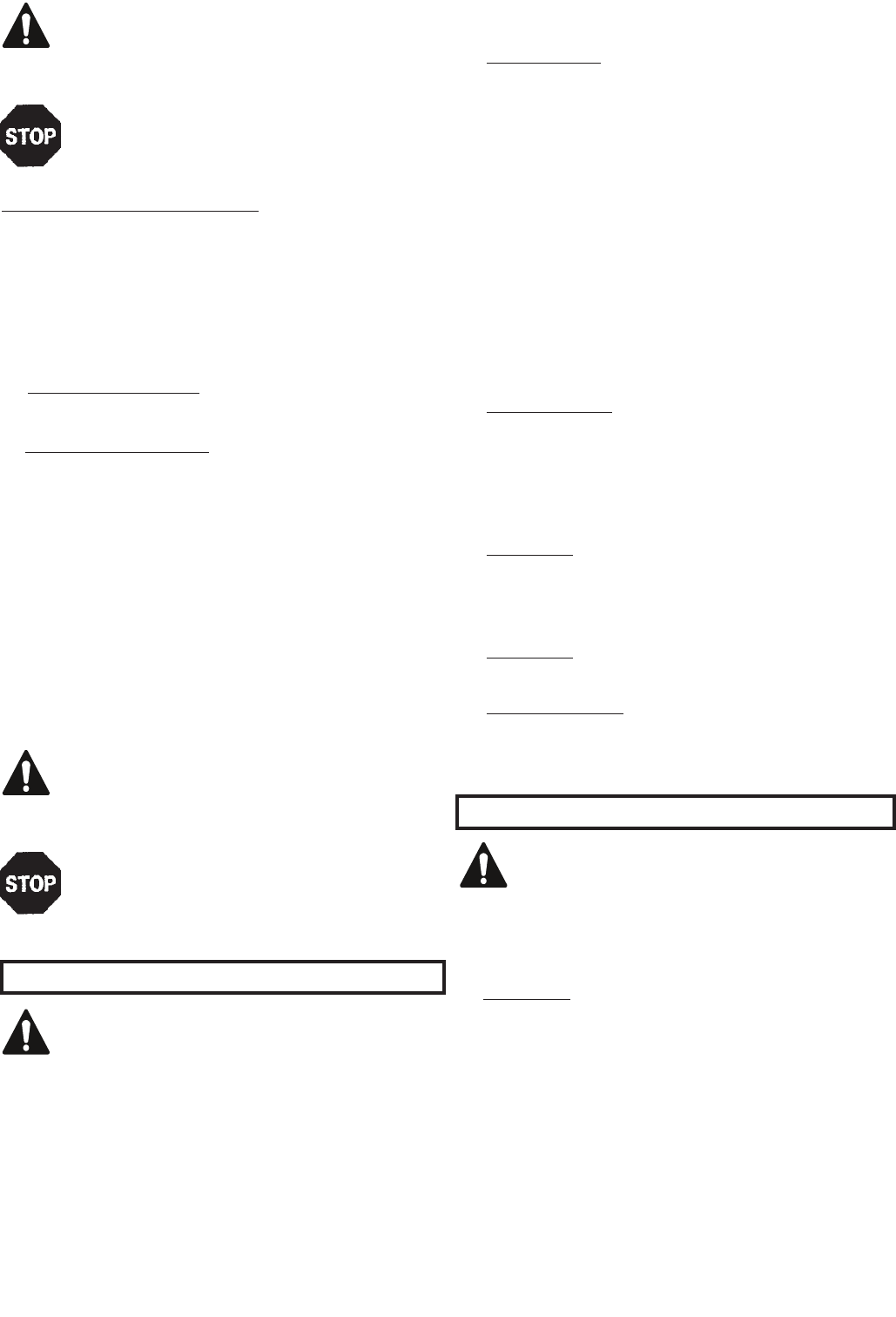
29
WARNING: Keep hands clear of rotating tools
during operation. READ ALL SAFETY WARNINGS
before operating this machine.
WARNING: Keep hands clear of rotating tools
during operation. READ ALL SAFETY
WARNINGS before operating this machine.
Stop the unit by turning the POWER SWITCH
[H] to the OFF position (See FIG. 6). Wait for
all tool movement to stop before transporting
the machine.
4) STOPPING THE UNIT (Electric Models):
Normal or Emergency Stop: Pull the Engine
Throttle into the STOP position [Position M]
[See FIG. 9, and FIG. 10]. Wait for all tool move-
ment to stop before transporting the machine.
6) STOPPING THE UNIT (Gasoline Models):
Start / Stop of Gasoline Models: [FIG. 9 & FIG. 10]
1) Start the engine by using the procedure in the
engine operation manual.
2) Push
Throttle Lever [L] up to, but not past, the
START position (Position “2”) [FIG. 9 & FIG. 10]. In
this position the engine clutch will be disengaged
when the engine starts, so the accessory disks will
not rotate.
3) Starting a cold engine: Pull the Choke Lever [O]
upward. Pull the engine starter rope until the engine
starts, then push Choke Lever [O] downward.
Starting a warm engine: Same as above, except
that Choke may not be needed. (Choke Lever
[O] may need to be pushed downward into
“No Choke” Position).
4) Move the Throttle Lever [L] past the START position
(Position 2) so that the engine clutch engages and
the accessory disks begin to rotate.
5) Hold the handles firmly and gently guide the
machine over the work area. Note: For rough
surfaces the engine speed (engine RPMs) should
remain as low as possible. As soon as the surface
begins to become smooth the engine speed can
be increased, but running the engine at full throttle
is normally not required.
6. Incidents During Operation
7. Maintenance
WARNING: Before inspecting or performing any
maintenance, ALWAYS locate the machine on
a level surface with the engine/motor OFF, and
the start switch in the OFF position, and the
power source disconnected.
WARNING: Before performing any maintenance,
ALWAYS locate the machine on a level surface
with the engine / motor OFF, and the start
switch in the OFF position, and the power
source disconnected.
Check Daily:
1) All Models:
a) At the end of each day clean the machine
to remove sludge buildup.
1) If the engine or motor stops during operation,
check the following:
Electric Model:
a) Interruption to electrical connection: Check all
electrical connections.
b) Manual Overload switch has been tripped:
Single phase, 60 Hertz motors are equipped
with a manual overload Reset Button [K]
[FIG. 4]. If the motor stops because of an
electrical overload and the overload Reset
Button [K] trips, turn the motor Power Switch
(H) to the OFF position [FIG. 6].
Allow the motor to cool for 5 to 10 minutes,
then push the Reset Button [K]. A “click” sound
indicates that the motor is reset and ready for
operation. Restart the motor by reconnecting
the machine to the power source, and then turn
the Power Switch [H] to the ON position.
Gasoline Model:
a) Out of fuel: Check fuel level.
b) Low Oil Level: This unit is equipped with a shut
down system that stops the engine if a low oil
level is encountered. Check the engine oil level
with the rear axle in the Operation Position [F].
All Models:
a) Excessively fast grinding could stall the engine
2) Engine or Motor runs, but Accessory Disks don’t
rotate. Check the following:
All Models:
a) Check that the drive belt tension is adequate.
Gasoline Models:
a) Engine Clutch not properly working. Repair
or replace as required.



